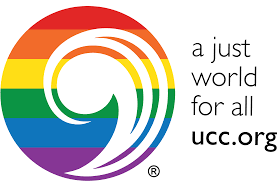Friends,
In recent weeks I have been calling us to a new level of Biblical literacy, reclaiming Scripture from those who twist it control and shame rather than liberate and heal. To that end, during Lent I am asking you to do 3 things:
1) Get a good study Bible in the New Revised Standard Version (NRSV). These study Bibles have notes, introductions, references, etc. to help you as we learn together to better decipher Scripture in a life-giving way. The NRSV is considered one of the most accurate translations available today. I recommend the New Interpreters Study Bible put out by Abingdon Press. You can get a hardback copy for $20-30 on Amazon or Cokesbury for about $38 and it’s well worth the investment.
If you choose another study Bible, do some research to see if the editors and commentators are more conservative or non-conservative as each one has their own agenda and spin on scripture that will lead them to write in a way that encourages a literal perspective, which is what we are trying to avoid.
2) Join us for the study of Marcus Borg’s, Reading the Bible Again for the First Time: Taking Scripture Seriously but Not Literally. It is a terrific introduction to really understanding Scripture for ourselves in a new way that opens it up rather than close us, and our hearts, down.
3) Make a practice of reading the Lectionary Texts assigned for each Sunday during Lent. These are the Scriptures we choose to read from and base sermons upon in most churches from the Reformed tradition. The Lectionary goes in 3-year cycles. Right now, we are in Year C and you can scroll down to the Scriptures for the coming Sunday. For instance, this Sunday, February 20th, we are in the Seventh Sunday After Epiphany and the passages for that date can be found here https://lectionary.library.vanderbilt.edu/texts.php?id=113
Read these throughout the week. Use the study Bible to read the introduction to the book of the Bible you are reading and the notes for the passage. See if you can find a common theme and use what you are learning from the Borg study to decipher more about what God might want to speak to us today through those words. By the time Sunday comes, you’ll better understand the liturgy and sermon (at least I hope what I say makes sense!)
When interpreting scripture, ask yourself, “What’s the healthiest, most loving, most life-giving and liberating translation of this passage that the Creator and Sustainer of Life would want for us and for others?” For instance:
Does the passage the way you have been taught it or are currently understanding it encourage shame, being small, tolerating mistreatment, allowing others to not be their best selves, not setting boundaries, not speaking up on behalf of yourself or others?
Then it does not meet this criterion.
Does it encourage judgment of others, feeling better about oneself than others, committing character assassination or critique of others as a person, calling THEM OUT in shame rather than calling their BEHAVIOR FORTH to something better, seeing oneself in the passage as hero or victim so that either way the passage is all about you?
Then it does not meet this criterion.
But does it encourage gentleness and compassion, generosity and patience, for yourself and for others, but with healthy boundaries that lead to right relationship?
Does it call you to forgiveness, not for their sake, but for yours, while also giving you room to love from a distance when someone is not being their best selves?
Does it comfort you that you are beloved and God is on your side and sees you as worthy, while also reminding you God is on the side of those who consider themselves your enemy and while God may be aggrieved at their behavior sees them as worthy and wants their transformation and salvation, too?
Does it remind you that God wants both the oppressed and oppressor that exist within us and within others, free from the systems that keep us all held down?
Does it challenge you to give freely in service to God and others while reminding you to pour from your saucer and not your cup so that you have something of yourself left to continue giving for the long term, remembering that this life thing is a marathon and not a sprint so we need to save some reserves for the next task God puts before us?
Does it keep you right-sized—not too small, not too big—and does it help you keep others in perspective, too—not good guys or bad guys—but everyone as just another human on the planet trying to figure this life-thing out?
If it does these things, then it meets that criterion.
Jesus called forth those who used power and privilege to oppress and/or neglect others. Jesus comforted those who were oppressed and neglected. God created all life and all artists who create know what it is to want their art to do the most good in the world. Why should we believe Scripture would be used to do anything less? Why would the Creator and Sustainer of Life want anything for us that is anything but Life-Giving?
So, let’s reclaim Scripture, which means we cannot be intellectually lazy. Yes, it can seem hard, but learning the tools to be better able to decipher passages used abusively is our command from God.
In 1st Peter 3:15, we are told to, “always be ready to make your defense to anyone who demands from you an accounting for the hope that is in you.” Our conservative siblings of faith take this literally AND seriously and are thus able to shift the narrative and convince people into believing that they are somehow less than loveable by God. It is up to us to reclaim Scripture and be informed enough to offer an alternative Christian voice that KNOWS SCRIPTURE WELL ENOUGH to lovingly call bull on anything that leaves God’s kids feeling excluded from Christ’s table.
I invite you to join me, this Lenten Season, in deepening our literacy and reclaiming Scripture.


